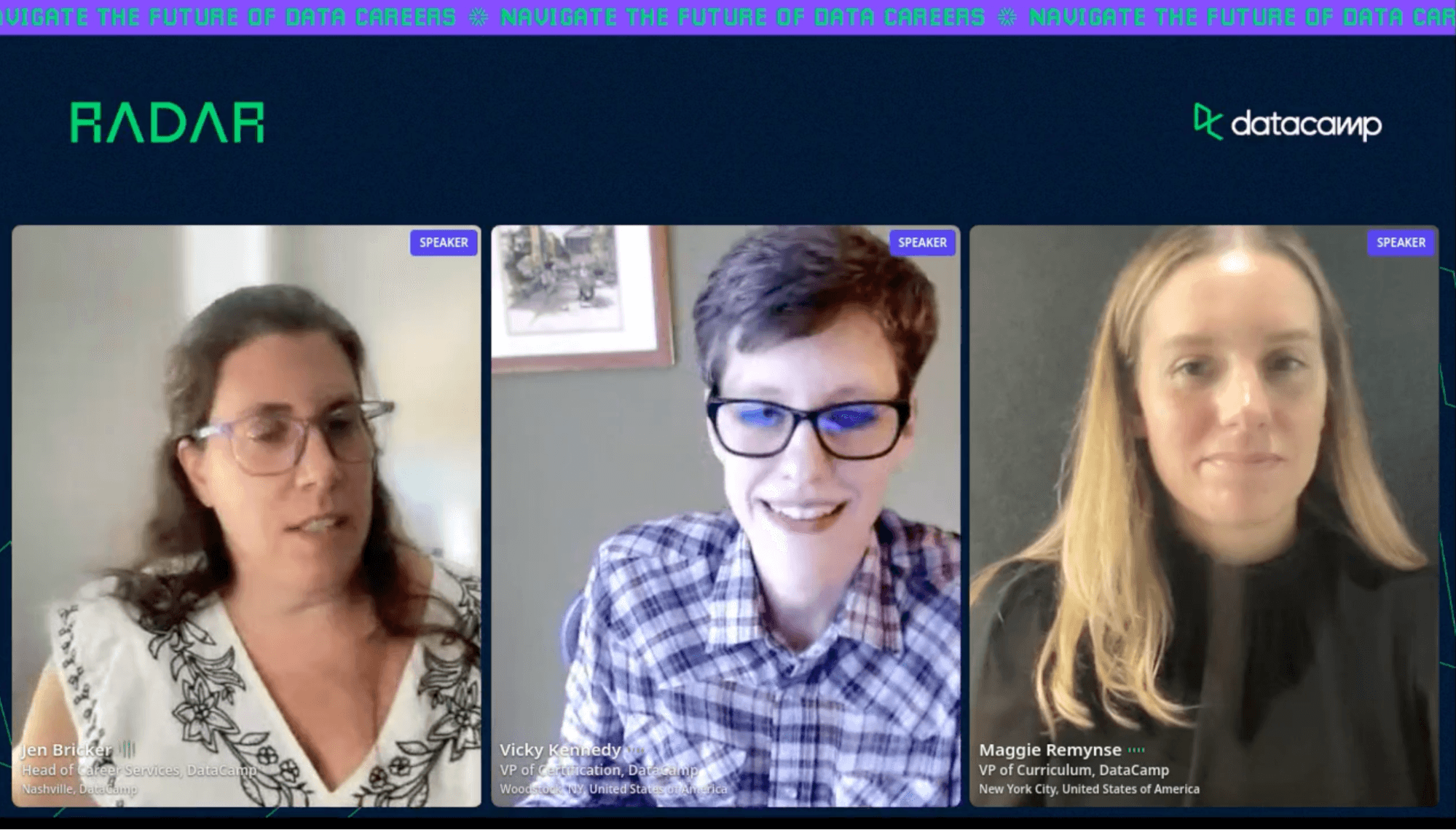Course
Radar Recap — Data Science Certification: Is It Worth It?
DataCamp’s Certifications were designed to be an official recognition that an individual has achieved the required skill level to be either a data scientist or a data analyst
Vicky Kennedy, VP of Certification at DataCamp
Modern data science certifications are built to validate your ability to do data science in the real world
Maggie Remynse-Chou, VP of Curriculum at DataCamp
The choice between both types of certification is really about what is the learner journey and what is the long term job journey an individual wants to take that’s going to set them up for success.
Maggie Remynse-Chou, VP of Curriculum at DataCamp
With certifications, you’re really certifying on the skills that are relevant to the job you’re looking for
Maggie Remynse-Chou, VP of Curriculum at DataCamp
DataCamp’s Certifications were designed to be an official recognition that an individual has achieved the required skill level to be either a data scientist or a data analyst
Vicky Kennedy, VP of Certification at DataCamp
Learn more about Data Science and Data Analysis
Course
Data Science for Business
Course
Python Data Science Toolbox (Part 1)
Why we use IRT at DataCamp
Pieter Moors
9 min
Introducing the DataCamp Certification Technical Manual
Pieter Moors
5 min
Announcing Skill Verification, a New Way to Prove Your Data Skills!
Vicky Kennedy
2 min
The 5 Best Cloud Certifications to Kick-Start Your Career in 2024
Matt Crabtree
9 min
Introducing New SQL Associate Certification
DataCamp Team
4 min
A Guide to PyTorch Certifications & Certificates
Adel Nehme
8 min
